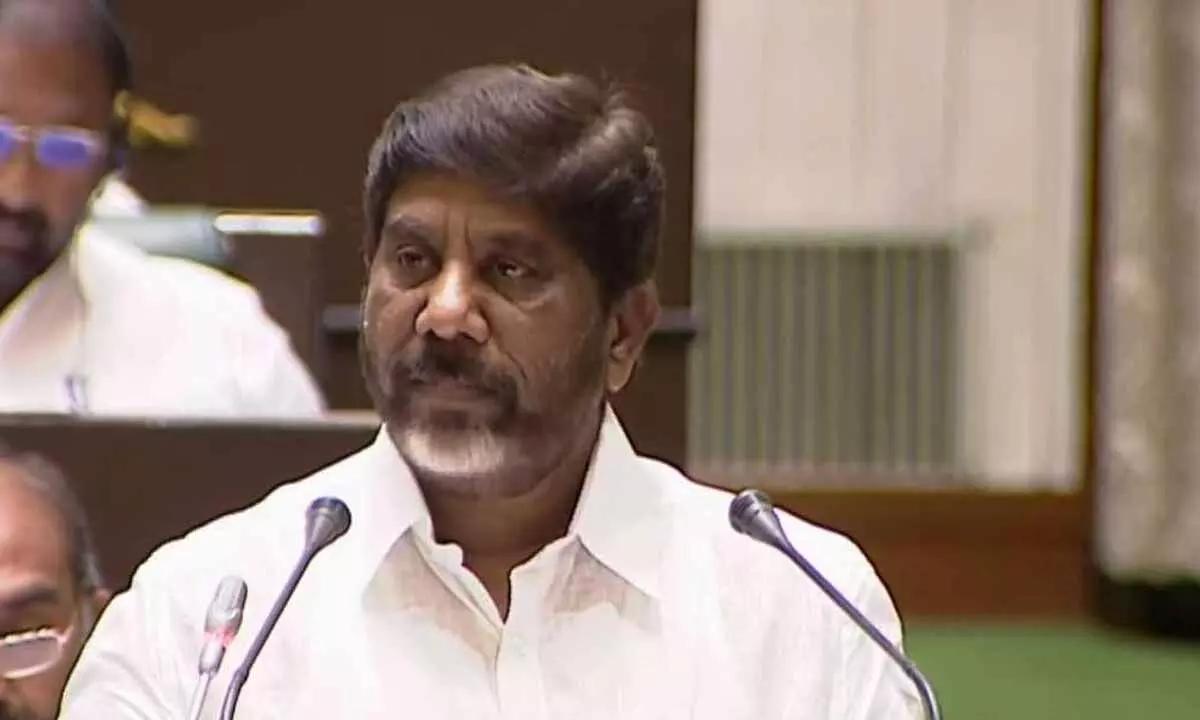Telangana’s Budget prioritises rural development and women’s empowerment

The Telangana government has reinforced its commitment to rural progress and women’s empowerment with a substantial allocation of ₹31,605 crore for the Panchayat Raj and Rural Development (PR&RD) department in the 2025-26 budget. This funding, second only to the Scheduled Caste Welfare department’s ₹40,232 crore allocation, reflects the state’s strategic focus on revitalising rural infrastructure and fostering economic independence among women.
Strengthening rural infrastructure
Presenting the budget in the Assembly on Wednesday, 19 March 2025, Deputy Chief Minister and Finance Minister Mallu Bhatti Vikramarka underscored the government’s intent to restore rural governance, which he claimed had deteriorated under the previous administration. “We have developed a comprehensive roadmap for its revitalisation,” he stated, emphasising efforts to rebuild rural systems and enhance livelihoods.
One of the key components of this plan is the government’s pledge to provide ₹1 lakh crore in interest-free loans to one crore women through the Indira Mahila Shakti Mission scheme. This initiative aims to bolster women’s financial autonomy and entrepreneurial opportunities.
Surpassing loan targets for women
Under the Indira Mahila Shakti Mission, the state had initially set a goal of providing ₹20,000 crore in interest-free loans to Self-Help Groups (SHGs). However, the government exceeded this target, distributing ₹21,632 crore and facilitating the establishment of 2.25 lakh microenterprises. These businesses have created significant employment opportunities for women, further integrating them into the economic framework.
Empowering women-led enterprises
The government is actively promoting women-led business initiatives. As part of this effort, ₹110 crore has been earmarked to construct 22 Indira Mahila Shakti Buildings, which will serve as business hubs for SHGs. Additionally, 214 Indira Mahila Shakti Canteens have been launched, providing a platform for women to engage in the food service industry.
In a move to further enhance financial security, SHGs have been entrusted with stitching school uniforms, with the rate per uniform increased to ₹75. This has generated approximately ₹28 crore in earnings, with 3.75 crore uniforms produced. Moreover, ₹634 crore has been allocated for 23,701 infrastructure projects under the Amma Adarsha Patashala Programme, enabling SHGs to take on large-scale community-driven initiatives.
Women’s SHGs are also venturing into paddy processing and supply, with state support for rice mills and mini warehouses. This collaboration allows SHGs to supply rice to the Food Corporation of India (FCI), ensuring sustained economic engagement for rural women.
Expanding business and employment opportunities
A range of new business initiatives has been introduced, including an insurance scheme covering ₹2 lakh for natural death and ₹10 lakh for accidental death for SHG members. The government has also facilitated the launch of 32 mobile fish retail outlets and set up Telangana’s first women-run petrol station in Narayanpet with an investment of ₹1.23 crore.
In the transport sector, 600 buses are being leased to TGSRTC through Mandal Women’s Federations, with 150 already in operation. The government is also integrating SHGs into the renewable energy sector by engaging them in the establishment and maintenance of solar power plants, with a target of generating 1,000 megawatts of solar energy.
Rural employment and infrastructure development
Under the Mahatma Gandhi National Rural Employment Guarantee Scheme (MNREGS), the government has prioritised rural employment, benefiting 25.76 lakh families in the past year. Timely financial contributions have ensured the successful implementation of projects aimed at boosting rural livelihoods.
With these initiatives, Telangana is laying the foundation for a stronger rural economy and greater financial independence for women. The substantial budgetary allocations underscore the government’s focus on inclusive development, ensuring that rural communities and women-led enterprises receive the support they need to thrive.


